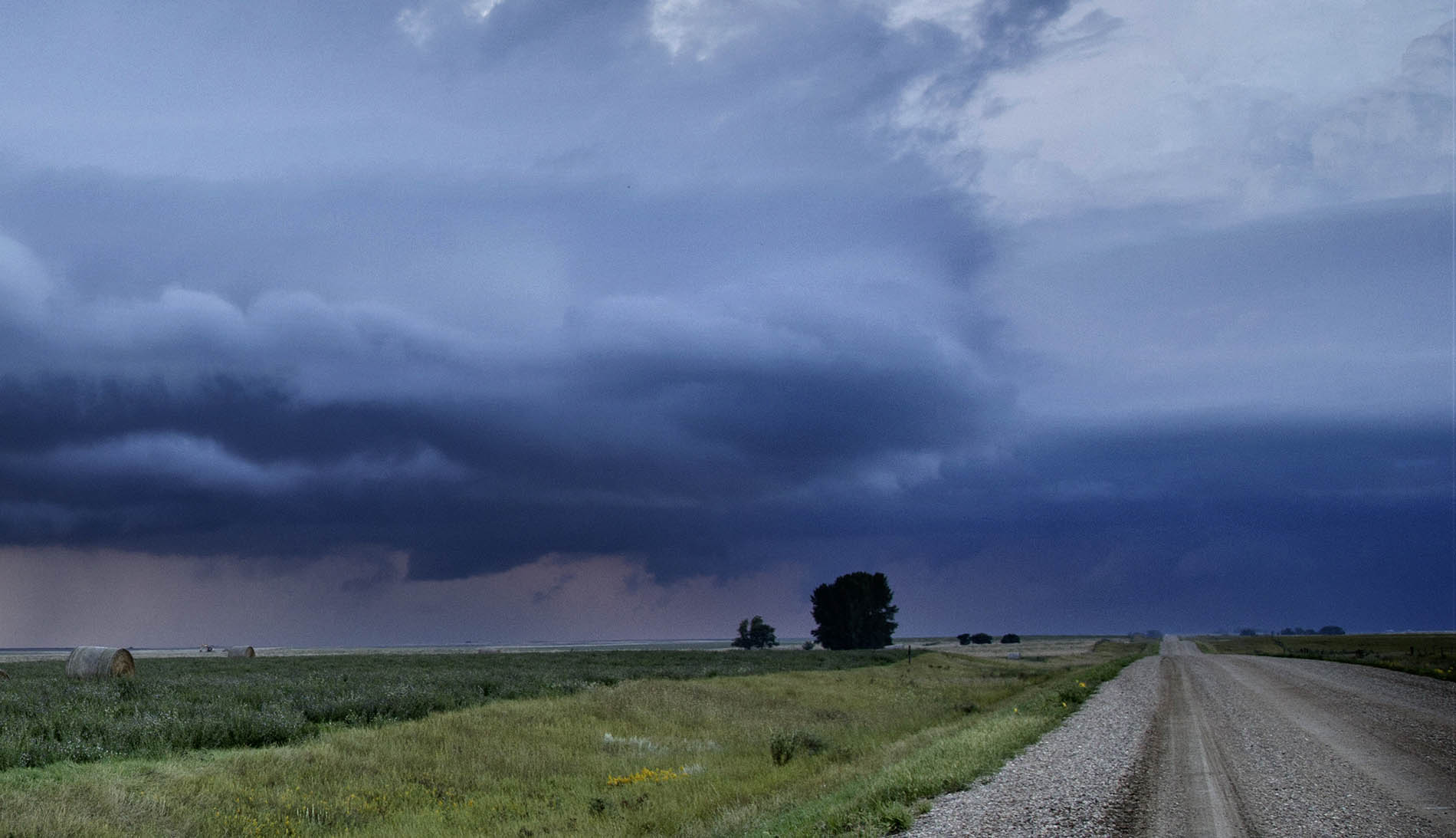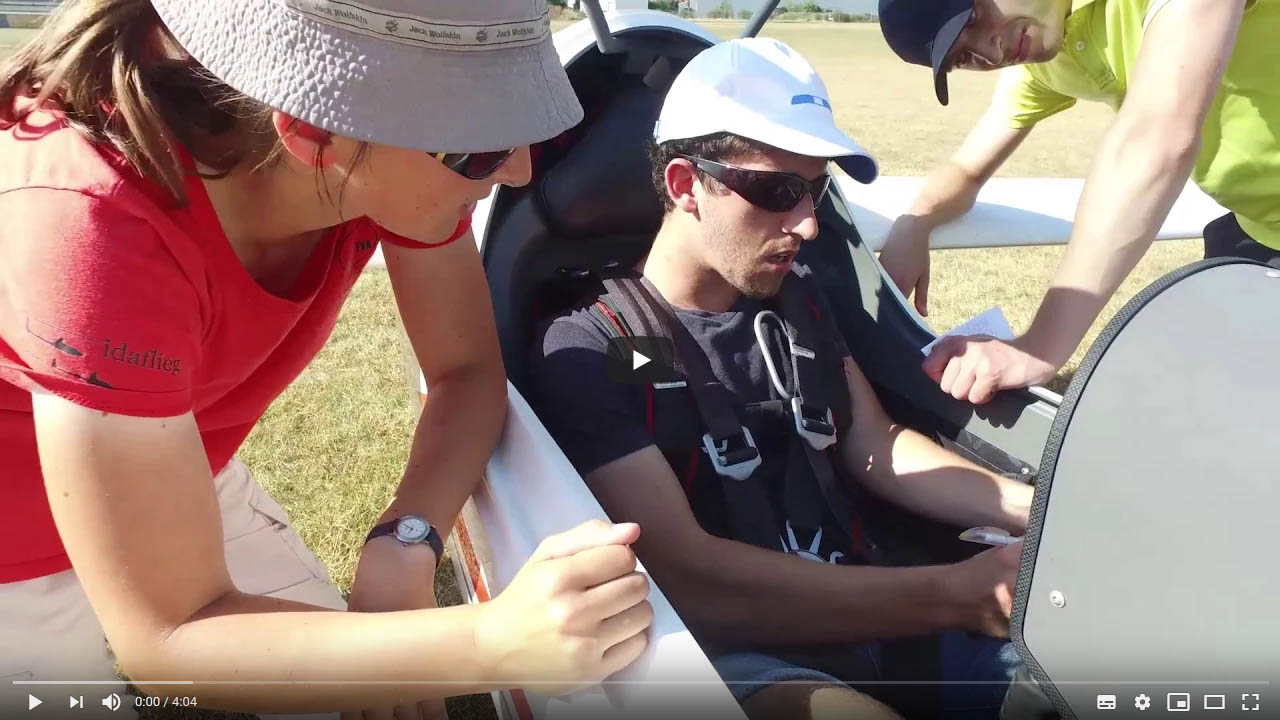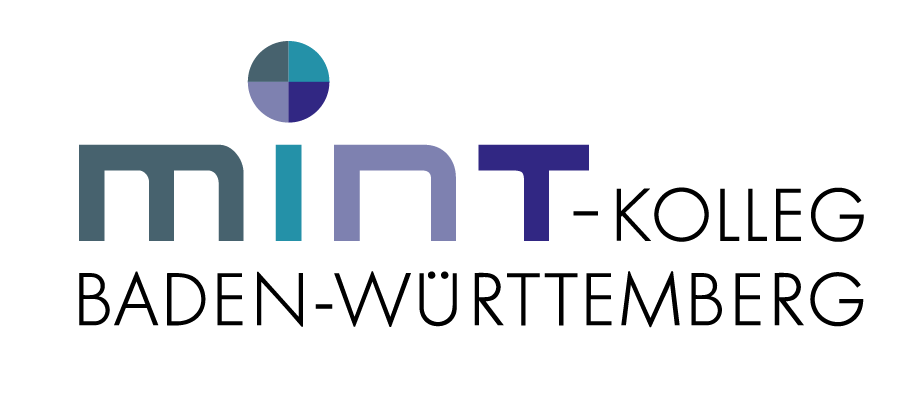Degree: Bachelor of Science (B.Sc.)
Regular program length: 6 semester (full-time program)
Credit points (ECTS): 180 credit points
Language of instruction: German
Higher semester: no
Higher semester: winter and summer term
First semester: September 15
Higher semester: September 15 for winter term, March 15 for summer term
First semester: July 15
Higher semester: July 15 for winter term, January 15 for summer term
Studiengangsbeschreibung
Worum geht’s?
Der Bachelorstudiengang Meteorologie und Klimaphysik verbindet eine fundierte physikalische Grundausbildung mit einer speziellen Ausrichtung auf die Physik der Atmosphäre. In den ersten drei Semestern ist das Studium deshalb nahezu identisch mit dem Bachelorstudiengang Physik: Du setzt dich intensiv mit Klassischer Experimental- und Theoretischer Physik, Moderner Physik sowie Mathematik auseinander. Ergänzend belegst du erste Veranstaltungen zu meteorologischen und klimatologischen Grundlagen.
Ab dem vierten Semester vertiefst du dein Wissen in zentralen Bereichen der Meteorologie, darunter Theoretische Meteorologie, Synoptik (Wetterkunde), Numerik und Statistik, Zirkulation und Zusammensetzung der Atmosphäre. Ein meteorologisches Praktikum sowie ein Seminar zur Wettervorhersage bieten dir die Möglichkeit, dein theoretisches Wissen praktisch anzuwenden.
Der Studiengang bereitet dich optimal auf ein weiterführendes Masterstudium vor. Du legst damit den Grundstein für vielseitige Karrierewege auch jenseits der bekannten Wettervorhersage, etwa in der Erstellung von Umweltgutachten, der Risikoabschätzung von Naturgefahren in der Versicherungsbranche, der Energiewirtschaft oder in der numerischen Simulation.
Program structure
During your studies, you have various subjects, which consist of one or more modules. A module deals with a specific topic and consists of one or more courses. In the module handbook for your degree program, you will find a description of the modules and their subject assignment as well as a study plan. This gives you an orientation as to which courses you should attend in which semester in order to complete your studies within the standard period of study. It takes into account a balanced distribution of courses over the individual semesters. It also ensures that you are first taught the important basics before moving on to more advanced topics. Your individual course of study may differ from this.
Im ersten Teil deines Studiums (Semester 1-3) durchläufst du wie in allen Studiengängen der Fakultät für Physik eine physikalisch-mathematische Grundausbildung, bestehend aus den Fächern
- Klassische Experimentalphysik mit den Modulen Mechanik, Elektrodynamik, Optik & Thermodynamik sowie dem Praktikum Klassische Physik 1,
- Theoretische und Moderne Physik mit einem Einführungsmodul sowie den Modulen Mechanik und Moderne Physik für Meteorologen und
- Mathematik und Informatik mit Höhere Mathematik I-III sowie Programmieren.
Ergänzend dazu belegst du im ersten Studienjahr das Fach
- Grundlagen der Meteorologie und Klimaphysik, im Rahmen dessen du zum Abschluss des 2. Semesters die Modulprüfung Einführung in die Meteorologie und Klimaphysik absolvierst.
Ab dem dritten Semester erweitert sich dein Studienplan um die Fächer Theoretische und Angewandte Meteorologie und es erfolgt eine sukzessive Vertiefung deiner meteorologischen und klimatologischen Grundlagenkenntnisse.
So absolvierst du neben einem Einführungs- und einem Fortgeschrittenenmodul in Theoretischer Meteorologie (Semester 3-5) im Bereich der Angewandten Meteorologie (Semester 3-6) eine Vielzahl von Vorlesungen, Übungen und auch ein weiteres Praktikum, z.B. zu Themen wie Meteorologisches Messen, Numerik & Statistik und Synoptik (Wetterkunde).
Im sechsten Semester sieht dein Studienplan mit dem Modul Zirkulation & Zusammensetzung der Atmosphäre eine weitere Vertiefung im Fach Grundlagen der Meteorologie und Klimaphysik vor. Gleichzeitig widmest du dich deiner Bachelorarbeit, mit der du dein Studium abschließt. Mehr zu dieser erfährst du weiter unten.
Berufspraktikum
Ein verpflichtendes Berufspraktikum ist im Bachelorstudiengang Meteorologie und Klimaphysik am KIT nicht vorgesehen. Du kannst jedoch während deines Studiums ein freiwilliges Praktikum absolvieren, sofern es einen Bezug zu deinen Studieninhalten hat. Wenn das Praktikum mindestens die Hälfte der Vorlesungszeit umfasst, kannst du dafür beim Studierendenservice ein Urlaubssemester beantragen.
Auslandsaufenthalte
Im Bachelorstudiengang Meteorologie und Klimaphysik hast du die Möglichkeit, wertvolle internationale Erfahrungen zu sammeln. Du kannst zum Beispiel ein Auslandssemester absolvieren, in dem du ohne Studiengebühren an einer Partnerhochschule studierst und Leistungen erbringst, die dir bei deiner Rückkehr ans KIT anerkannt werden können.
Informationen zu bestehenden Austauschprogrammen, wie zum Beispiel ERASMUS+ oder dem Eucor-Verbund, erhältst du auf der Seite Auslandsaufenthalt des Instituts für Meteorologie und Klimaforschung sowie beim International Students Office des KIT, das zusätzlich noch weitere Programme für alle KIT-Studierenden anbietet.
Bachelorarbeit
Zum Abschluss deines Studiums verfasst du eine Bachelorarbeit, mit der du zeigst, dass du ein fachspezifisches Problem eigenständig und in begrenzter Zeit nach wissenschaftlichen Methoden bearbeiten kannst. Die maximale Bearbeitungsdauer beträgt sechs Monate. Du kannst deine Arbeit auf Deutsch oder Englisch verfassen.
Zur Bachelorarbeit gehört auch eine Präsentation, die spätestens vier Wochen nach Abgabe der Arbeit erfolgen muss.
Qualification profile of the graduate
The graduates have completed a natural-science program with a research component and have gained fundamental knowledge and methodical skills that enable them to employ their acquired competence in areas of applied meteorology.
They possess profound knowledge in General Meteorology and Climatology, Synoptic Meteorology, Theoretical Meteorology, Classical Experimental Physics, Classical Theoretical Physics as well as basic knowledge in Modern Physics. Moreover, they are familiar with content of Higher Mathematics and Informatics.
The graduates are capable to solve – or develop approaches to solve – application-related and research problems in an analytical-theoretical, computer-based or experimental way by means of knowledge acquired during the degree and using methods of the subject. On the basis of the obtained knowledge, they competently classify facts and thematic areas.
They are able to work in a self-organised way, possess essential competence in formulating scientific texts and facts, and are proficient in didactically appealing presentation techniques. The graduates are capable to structure their obtained knowledge. They know how to acquire new proficiency, thereby reaching an extension and deepening of their knowledge, respectively.
They have learned to reflect their actions and to recognise and evaluate related societal and ethical aspects.
Berufsperspektiven
Berufsperspektiven eröffnen sich dir mit dem Bachelorabschluss in Meteorologie und Klimaphysik außer im bekannten Bereich der Wettervorhersage (bei nationalen und privaten Wetterdiensten) u.a. im Bereich der Erstellung von Umweltgutachten (z.B. bei Ingenieurbüros, die Studien über Windkraftstandorte oder die Einflüsse der Stadtentwicklung auf die Luftqualität erstellen) sowie in der Versicherungs- und Energiewirtschaft, wo es bspw. um die Risikoabschätzung von Natur- und Umweltkatastrophen oder um Wettervorhersagen im Hinblick auf die Sicherung der Stromversorgung gehen kann. Außerdem kannst du tätig werden bei Banken sowie Unternehmen, die Software entwickeln oder numerische Simulationen jeglicher Art durchführen.
Besonderheiten des Studiengangs
Besonderheiten von Meteorologie und Klimaphysik B.Sc. am KIT
-
Verankerung des Studiengangs am Institut für Meteorologie und Klimaforschung (IMK) der KIT-Fakultät für Physik mit starkem Forschungsbezug
-
enge Verzahnung von theoretischen, experimentellen und praktischen Aspekten der Meteorologie auf der Basis einer fundierten mathematisch-physikalischen Grundausbildung
-
Brückenkurse und semesterbegleitende Kurse am MINT-Kolleg
-
Möglichkeit eines entschleunigten Studiums durch Teilnahme an Kursen des MINT-Kollegs
-
konsekutiver englischsprachiger Masterstudiengang
-
Atmosphärenforschung am KIT unter den Top-Unis weltweit (Platz 8 im Shanghai-Ranking)
-
kleiner Studiengang ermöglicht kleine Lerngruppen, engen Kontakt zu Lehrenden und persönliche Beratung
What KIT has to offer
- central campus close to the city forest and right next to the city center
- orientation week before the start of lectures
- 24-hour library offering single and group working places
- wide range of inexpensive catering options (dining hall, cafeteria, Koeri and Pizzawerk)
- numerous interdisciplinary offers for personal and professional development, e.g. Lernlabor, Schreiblabor and Perspektivenlabor
- study abroad, e.g. via Erasmus
- excellent university sports facilities with a large selection of sports
- comprehensive cultural offerings with university orchestras, choirs and theater groups
- extensive support for career entry and self-employment
- Lernraum app
- internationally oriented degree programs and diverse exchange programs
- modern laboratories and practical teaching methods
- diverse student initiatives, clubs and opportunities to actively participate in campus life
- stay in touch after graduation via the alumni network
Zugangsvoraussetzungen und Sprachnachweise
Higher education entrance qualification (HZB)
Germans and persons of equal status to Germans (i.e. EU/EEA nationals and non-EU/EEA nationals with a German higher education entrance qualification) are entitled to study at KIT if they have one of the following qualifications:
- General higher education entrance qualification (Abitur)
- (relevant) subject-restricted higher education entrance qualification (not Fachhochschulreife)
- Delta examination of the University of Mannheim (for holders of a Fachhochschulreife)
- recognized advanced vocational training (e.g. master craftsperson) or vocational training, professional experience and aptitude test for those with professional qualifications
For further options, see §58 of the "Landeshochschulgesetz" (State Higher Education Act).
Please note: German nationals with a foreign school-leaving qualification must have the relevant "Regierungspräsidium" (regional authority) certify that their qualification is equivalent to the German Abitur.
For non-EU/EEA nationals with a foreign school-leaving certificate (hereinafter also referred to simply as non-EU/EEA nationals), the school-leaving certificate from some countries is recognized as a direct university entrance qualification in Germany. In many cases, however, in addition to the school-leaving certificate, a university entrance examination and/or a successful year of study in the home country and/or the "Feststellungsprüfung" must be proven with valid documents in order to be allowed to study a bachelor's degree in Germany. You can find the country-specific regulations in the DAAD admissions database or on the Anabin website (in German only) of the "Zentralstelle für ausländisches Bildungswesen" (Central Office for Foreign Education). Further information is available from the International Students Office.
Sprachvoraussetzungen und -nachweise
Für den Bachelorstudiengang Meteorologie und Klimaphysik benötigst du ausreichende Kenntnisse der deutschen Sprache, welche mindestens dem Niveau C1 des Gemeinsamen Europäischen Referenzrahmens für Sprachen (GER) entsprechen müssen.
Proof of sufficient German language skills
Your higher education entrance qualification (HZB) is sufficient proof of your German language skills,
-
if you obtained it at a German-speaking school in Germany or abroad,
-
if you are a graduate of a bilingual secondary school in Germany or abroad and have passed a bilingual German examination, such as the AbiBac or the Gemischtsprachiges International Baccalaureat (GIB) or
-
if you graduated from a foreign school, but there is another official agreement with the respective country on the recognition of your school-leaving certificate or language certificate as proof of language proficiency for university studies in Germany.
A complete list of foreign school-leaving qualifications and language certificates that are recognized as proof of sufficient German language skills can be found on the website of the Kultusministerkonferenz (Standing Conference of the Ministers of Education and Cultural Affairs of the Länder in the Federal Republic of Germany).
If you did not obtain your higher education entrance qualification at a German-speaking institution, you must provide a separate language certificate - regardless of your nationality. Only the following are accepted
- the passed „Prüfungsteil Deutsch“ of the Feststellungsprüfung,
- the passed DSH with the overall result DSH-2,
- the passed TestDaF level 4 in all four parts of the exam (reading comprehension, listening comprehension, written expression, oral expression) or
- a comparable, recognized certificate of sufficient German language skills.
To find out which other recognized certificates can be accepted as comparable by KIT, please contact
- as a German or German-equivalent applicant: Studierendenservice
- as an applicant with non-EU citizenship: International Students Office
Please note:
Language certificates are extremely important application documents that can prevent your enrollment if you do not submit them on time. Therefore, check early on in the application process whether you have the necessary language certificates for your degree program and, if necessary, plan to take one of the language tests mentioned above. The deadline by which you must submit language certificates corresponds to the enrollment deadline stated in your admission offer. In justified cases, you can apply for an extension of this deadline. The extension can be granted until the start of the lecture period at the latest.
Additional necessary requirements for enrollment
For Germans and those with German equivalent status, an additional necessary requirement for enrollment is proof of participation in a study orientation test (e.g. www.was-studiere-ich.de) or a study orientation consultation in accordance with §7 of the "Landeshochschulgesetz" (State Higher Education Act), e.g. by the Student Advisory Service (ZSB) of KIT. Non-EU/EEA nationals do not have to provide this proof.
Application portal
Application for the 1st semester
Application for a higher semester
Study preparation
Prepatory courses at KIT: The MINT-Kolleg offers prospective and first-year students support in natural science and technical subjects (STEM).
In addition, the KIT-Departments offer special preliminary courses before the start of the semester program during the "O-Phase" (orientation week).
Support during your start at KIT
The KIT offers support for all first-year students in order to have a successful start of their studies. Numerous orientation events and mentoring programs at the KIT-Departments help students to make friends, orientate themselves and find support where needed. The central online portalstudienstart.kit.edu is a first guide to all important offers, brings together all relevant information and contains helpful hints for a successful start of your studies:
- advisory centers
- mentoring programs
- info sessions
- workshops
- extensive online information
Contacts
Student advisor
Student advisory services (ZSB)


Karlsruher Institut für Technologie (KIT)
Zentrale Studienberatung (ZSB)
Engelbert-Arnold-Str. 2
76131 Karlsruhe
Karlsruher Institut für Technologie (KIT)
Studierendenservice
Kaiserstr. 12
76131 Karlsruhe
First point of contact for international applicants
Karlsruher Institut für Technologie (KIT)
International Students Office (IStO)
Adenauerring 2
76131 Karlsruhe
Printed matter
Module handbook
Statutes and regulations
Teaching calendar
WT 2024/25
10-21-2024 to 02-15-2025
ST 2025
04-22-2025 to 08-02-2025
WT 2025/26
10-27-2025 to 02-21-2026
ST 2026
04-20-2026 to 08-01-2026
WT 2026/27
10-26-2026 to 02-20-2027
ST 2027
04-19-2027 to 07-31-2027
WT 2027/28
10-25-2027 to 02-19-2028
ST 2028
04-18-2028 to 07-29-2028
Lectures will not take place:
- From 12-24 to 01-06
- the week after Pentecost
- on all public holidays in the state of Baden-Wuerttemberg








